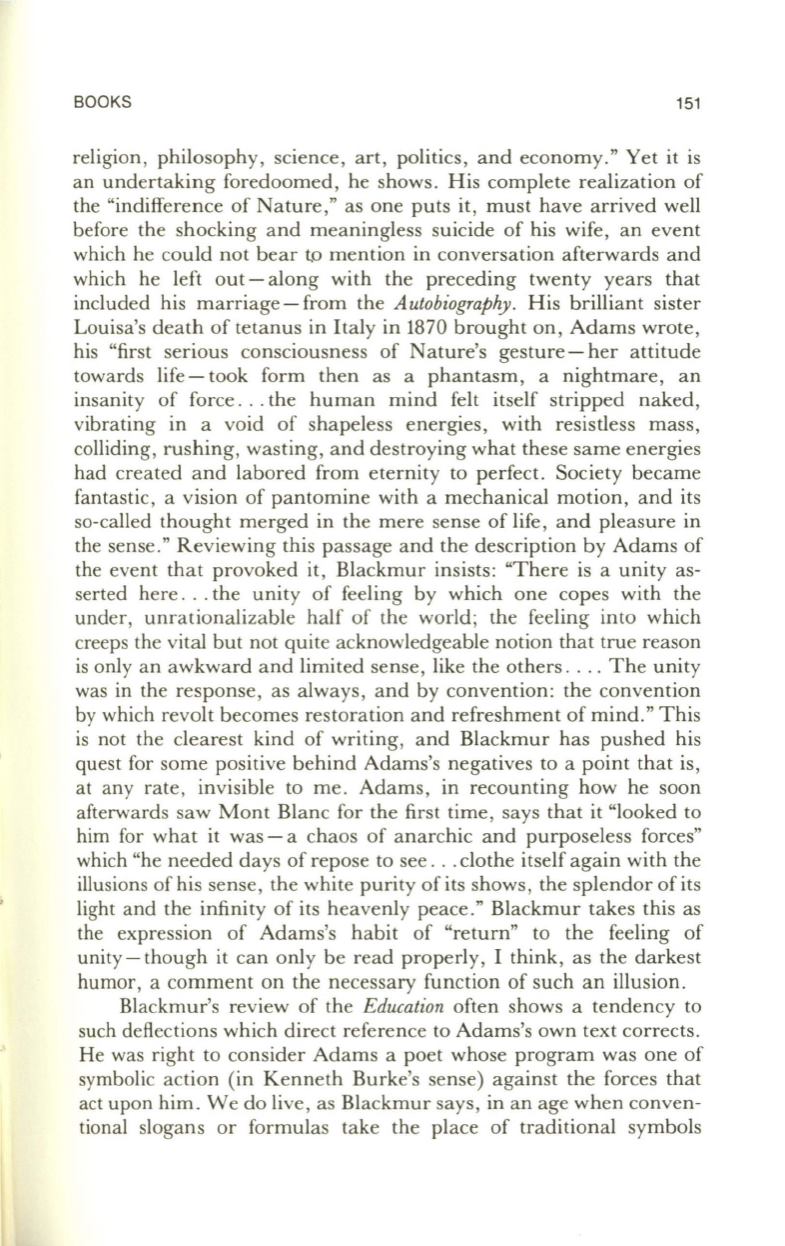
BOOKS
151
religion, philosophy, science, art, politics, and economy." Yet it is
an undertaking foredoomed, he shows. His complete realization of
the "indifference of Nature," as one puts it, must have arrived well
before the shocking and meaningless suicide of his wife, an event
which he could not bear tp mention in conversation afterwards and
which he left out - along with the preceding twenty years that
included his marriage - from the
Autobiography.
His brilliant sister
Louisa's death of tetanus in Italy in 1870 brought on, Adams wrote,
his "first serious consciousness of Nature's gesture - her attitude
towards life-took form then as a phantasm, a nightmare, an
insanity of force . .. the human mind felt itself stripped naked,
vibrating in a void of shapeless energies, with resistless mass,
colliding, rushing, wasting, and destroying what these same energies
had created and labored from eternity to perfect. Society became
fantastic, a vision of pantomine with a mechanical motion, and its
so-called thought merged in the mere sense of life, and pleasure in
the sense." Reviewing this passage and the description by Adams of
the event that provoked it, Blackmur insists: "There is a unity as–
serted here ... the unity of feeling by which one copes with the
under, unrationalizable half of the world; the feeling into which
creeps the vital but not quite acknowledgeable notion that true reason
is only an awkward and limited sense, like the others .... The unity
was in the response, as always, and by convention: the convention
by which revolt becomes restoration and refreshment of mind." This
is not the clearest kind of writing, and Blackmur has pushed his
quest for some positive behind Adams's negatives to a point that is,
at any rate, invisible to me. Adams, in recounting how he soon
afterwards saw Mont Blanc for the first time, says that it "looked to
him for what it was - a chaos of anarchic and purposeless forces"
which "he needed days of repose to see ... clothe itself again with the
illusions of his sense, the white purity of its shows, the splendor of its
light and the infinity of its heavenly peace." Blackmur takes this as
the expression of Adams's habit of "return" to the feeling of
unity - though it can only be read properly, I think, as the darkest
humor , a comment on the necessary function of such an illusion.
Blackmur's review of the
Education
often shows a tendency to
such deflections which direct reference to Adams's own text corrects.
He was right to consider Adams a poet whose program was one of
symbolic action (in Kenneth Burke's sense) against the forces that
act upon him. We do live, as Blackmur says, in an age when conven–
tional slogans or formulas take the place of traditional symbols


